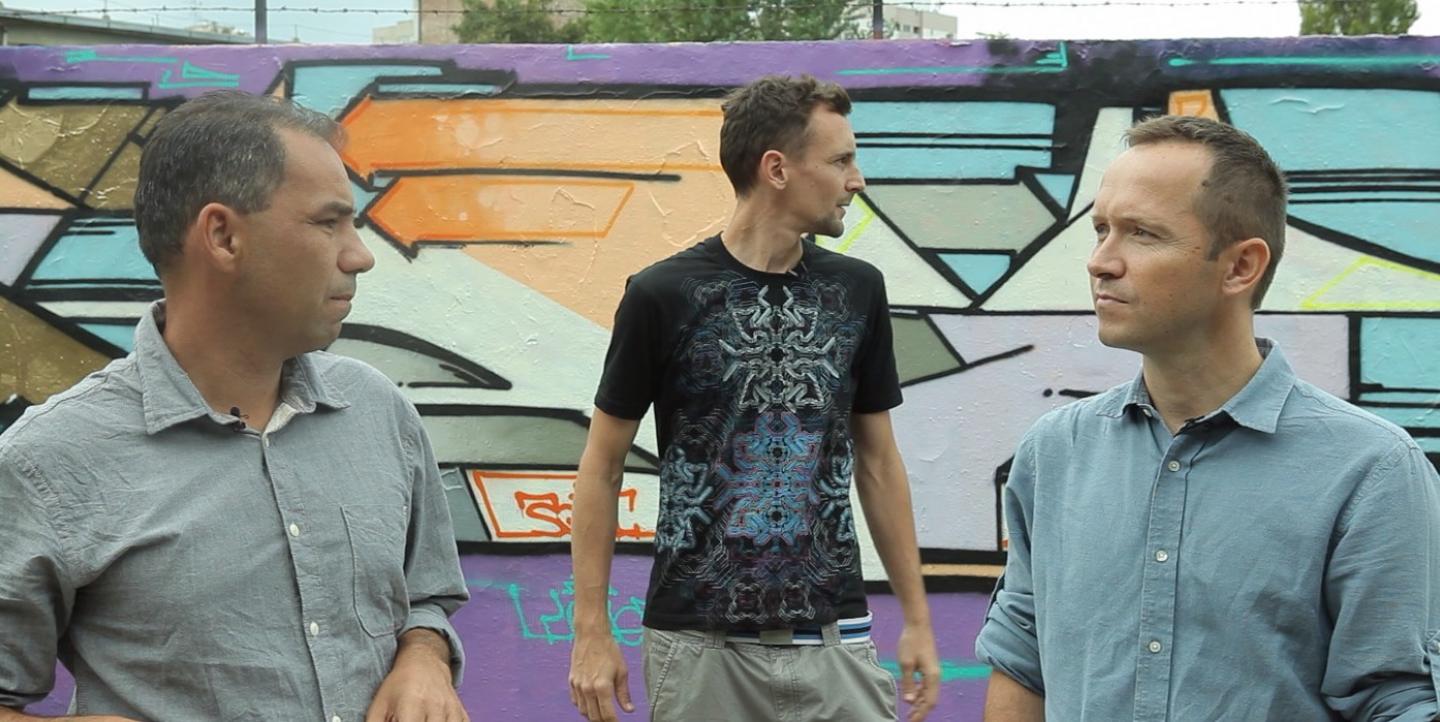Central European University professor Philip N. Howard declared Hungarian Prime Minister Viktor Orban "has staged an autocratic crackdown on the nation’s press,” in a New York Times op-ed from September 2014.
The government’s control over public media, Howard continued, allows it to appoint staff and control content.
Direkt36, a nonprofit center for investigative journalism in Hungary that launched last week, is trying to shift the story back to original reporting without government interference.
“We chose this model because traditional media companies in Hungary have been made vulnerable by the leverage that the government exercises over them, both as a regulator and a major advertiser,” the organization’s founders wrote in a post announcing Direkt36’s launch on Medium. “As a nonprofit organization, we will have greater freedom to conduct independent accountability reporting.”
Started by Hungarian editors and journalists Gergő Sáling, András Pethő and Balázs Weyer, Direkt36 has already started working on stories and is in the process of hiring two reporters.
The threesome decided on the name Direkt36 because they will only do honest, straightforward reporting. (The number 36 is Hungary’s country code.)
Though they had to raise start-up costs through traditional fundraising methods, Direkt36 will begin a crowdfunding campaign within two weeks and launch a fully functioning website in Hungarian and English in a month. While they will remain a small online news outlet and publish their work to the Direkt36 website, the founders hope to follow ProPublica’s business model by partnering with larger media outlets to showcase their work.
IJNet talked to Direkt36 co-founder András Pethő about the center's origins.
Change in the newsroom
When Pethő returned to work at well-known Hungarian news outlet Origo after a stint abroad, he noticed a change in the newsroom.
Pethő had been in the United States completing the Hubert H. Humphrey fellowship at the University of Maryland and working with the Washington Post’s investigative unit. When he came back to Origo, where he’d worked for almost 12 years, Pethő wanted to continue his investigative work.
But when he began pursuing a story about excess travel expenses spent by a high-level official in the prime minister’s office, he got pushback from the government and his company. After the government refused to provide information Pethő requested, he took them to court. The first hearing was scheduled for the week of the Hungarian parliamentary election in April 2014.
A few days before the hearing, Pethő’s editor Gergő Sáling called him: Origo’s management requested Pethő postpone the hearing because its timing coincided with the election.
Pethő refused. Weeks later, after a few stories had been published, Origo’s management asked Sáling to remove the posts from the website. Sáling didn’t comply.
The last straw came in June 2014 when Pethő published a major breakthrough in the series: The government official and his associate had spent about 2 million Hungarian Forints (the equivalent of US$7,442) on hotels in London, Italy and Switzerland over the course of seven days.
The story got picked up by news outlets around Hungary, and within days, Origo dismissed Sáling as its editor. Showing solidarity, Pethő, who was then deputy editor, quit. Dozens of Origo reporters followed suit.
“I spent all my journalistic career in Hungary at Origo, and for a long time it was a good place to be doing journalism,” Pethő said. “It was financially solid for most of the time, and when we faced pressure or when we did sensitive stories, I could always feel that we had the backing of the publishing company.”
“For most of the years, everything went well,” Pethő continued. “But something changed when I came back at the end of 2013 from the fellowship. I noticed things had changed when we were dealing with sensitive stories. The business side was not as supportive.”
Need for investigative journalism in Hungary
Though Pethő said brave journalists take on big issues in Hungary, the stories are “rarely systematic investigations.” Reports focus on wrongdoings, corruption and abuses of power but sometimes lack the same depth as investigative pieces run in Western countries.
“I know that in the U.S. only the [larger publications] can afford to spend a whole year investigating one story, but we don’t have the resources to do these long, time-consuming investigations in Hungary,” Pethő said, adding that doing investigative journalism is a complicated job.
“You have to be able to handle data, deal with sensitive interview situations and think strategically,” he continued. “We don’t have the models or many people doing this [in Hungary].”
The missing coverage is why Pethő, Sáling and Weyer decided to create Direkt36. While working at Origo as editors, Pethő and Sáling didn’t have a lot of time to pursue in-depth stories. A small nonprofit news organization will allow them to focus on what’s important, Pethő said: “Stories that shine light on the truth and hold the powerful accountable.”
In Hungary, telling the truth is getting more and more difficult. Here's our plan to change that https://t.co/0x5ogjZDKT
— direkt36 (@direkt36) January 6, 2015Main image courtesy of Direkt36. From left to right: Balázs Weyer, Gergő Sáling and András Pethő.

